
Lakshmi, the Hindu goddess of wealth, health, fortune, and prosperity. The root of the word is lak  and laka
and laka  , which respectively mean to perceive, observe, know, and goal, aim, objective. Together they signify know and understand your purpose.
, which respectively mean to perceive, observe, know, and goal, aim, objective. Together they signify know and understand your purpose.

Great Clarendon Street, Oxford, OX2 6DP, United Kingdom
Oxford University Press is a department of the University of Oxford. It furthers the University's objective of excellence in research, scholarship, and education by publishing worldwide. Oxford is a registered trade mark of Oxford University Press in the UK and in certain other countries
Colin Mayer 2018
The moral rights of the author have been asserted
First Edition published in 2018
Impression: 1
All rights reserved. No part of this publication may be reproduced, stored in a retrieval system, or transmitted, in any form or by any means, without the prior permission in writing of Oxford University Press, or as expressly permitted by law, by licence or under terms agreed with the appropriate reprographics rights organization. Enquiries concerning reproduction outside the scope of the above should be sent to the Rights Department, Oxford University Press, at the address above
You must not circulate this work in any other form and you must impose this same condition on any acquirer
Published in the United States of America by Oxford University Press 198 Madison Avenue, New York, NY 10016, United States of America
British Library Cataloguing in Publication Data
Data available
Library of Congress Control Number: 2018933535
ISBN9780198824008
ebook ISBN 9780192559234
Printed and bound in Great Britain by Clays Ltd, Elcograf S.p.A.
Links to third party websites are provided by Oxford in good faith and for information only. Oxford disclaims any responsibility for the materials contained in any third party website referenced in this work.
To Hannah and Ruth
If children dont get it,
Who does?
Praise for the book
Our world does not have long for business to escape its 40 year-long capture by the Chicago school. This book is a historic milestone in economic theory because it marks the final nail in Milton Friedmans intellectual coffin. It does this by illuminating a pragmatic pathway for business and policy makers to follow, to escape an anachronistic orthodoxy that is killing our beautiful planet and our precious communities. They must study it closely and then move fast, so that we alland those who come after usmight avoid calamity and, instead, prosper.
James Perry, Chairman of Cook.
Here is the case for reinventing the corporation so that it serves human well-being. Colin Mayer shows both why an exclusive focus on shareholder value is damaging, and how purposeful changes could support trustworthy corporations that combine social and business benefits.
Baroness Onora ONeill of Bengarve, Emeritus Professor of Philosophy, University of Cambridge.
In his humane and readable book Prosperity, Colin Mayer makes a compelling case for a new concept of the corporation, and the need to treat corporate purpose as far more than shareholder value. In showing how restoring trust is key to a true future prosperity, this book will reframe much of our thinking on this central subject.
The Hon. Mr Justice William Blair, High Court Judge of England and Wales.
A wonderful manifesto for change and essential reading for any who remain to be convinced that business canand shouldbe a force for a societal good. One of the most insightful and comprehensive accounts yet of how and why the corporation needs to change if it is to meet the needs and expectations of a new era. Thoughtful and well-argued, Mayer has done the cause of enlightened capitalism great service.
Paul Polman, CEO, Unilever.
One of the most pressing questions facing the world today is What is the role of the corporation in society?. Thanks to Professor Colin Mayer we now have a definitive answer: the corporations role is to fulfil its purpose. This wonderful book could have been titled From Profit to Purpose; in the recent past we have confounded the two. They are separate and purpose comes first. When purpose is achieved, profits will follow. In an intellectual and very readable tour-de-force Professor Mayer brings to bear an astonishing range of academic disciplines to present a very practical framework for how companies need to be managed today. For their own sake and the sake of us all.
Robert Eccles, Founding Chairman of the Sustainability Accounting Standards Board and Professor of Management Practice, University of Oxford.
The financial crisis and its aftermath called for answersquestions were raised instead. Our corporate and political environments have been severely shaken for more than a decade. We have to find new approaches and look for better answers to bring our social market economies into balance. Colin Mayer relentlessly challenges conventional wisdom, combining diverse academic fields and bringing business to meet academia. Prosperity is building on a wealth of research looking at the broader picture and its many corners to seek appropriate answers to the challenges of our world. Is purpose first, prosperity follows the answer?
Daniela Weber-Rey, non-executive director of HSBC Trinkaus & Burkhardt and Fnac-Darty.
Rarely in the history of economics and law does a person observe the current state of the world, recognize its deficiencies, and put forth a policy and paradigm that is destined to change the world. John Maynard Keynes in the twenties and thirties and now Colin Mayer are prime examples. In Prosperity Mayer builds on two decades of essays and articles and his 2013 book Firm Commitment to make the case for radical change in the way business corporations are perceived and operate. Mayer sees the corporation not as a vehicle primarily for creating shareholder wealth, but as having a purpose to enhance the wellbeing of all stakeholders. Prosperity envisages employees, customers, suppliers, communities, the environment, and the economy as equal participants with shareholders in corporations that operate to better them and mankind, now and in the future. This book is destined to be the bible of the Mayer-Paradigm of corporate governance, and the template for the policy changes that are necessary to implement it.
Martin Lipton, Senior Partner, Wachtell, Lipton, Rosen & Katz.
Businesses have a duty to do well by stakeholders as well as shareholders. How did too many corporations lose their sense of purpose? What is the right path to build responsible and sustainable relationships with society? This insight-rich book offers a comprehensive guide for restoring trust between companies, consumers, and communities. Professor Mayer makes a compelling argument that the purpose and values of modern corporations have been diluted and it will take the work of executives, legislators, regulators, bankers, investors, and even shareholders to fix them.

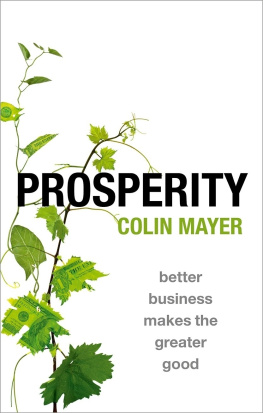

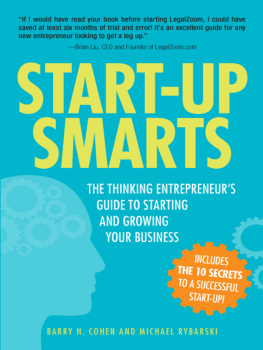
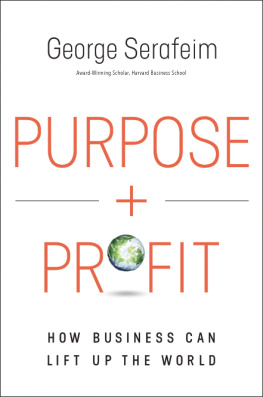

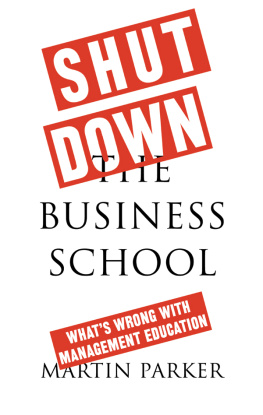
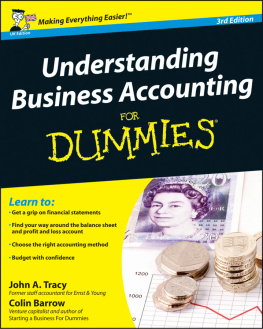
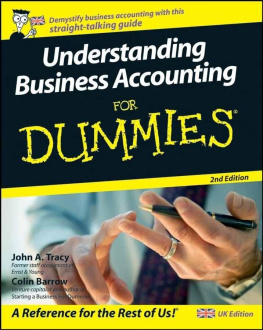


 and laka
and laka  , which respectively mean to perceive, observe, know, and goal, aim, objective. Together they signify know and understand your purpose.
, which respectively mean to perceive, observe, know, and goal, aim, objective. Together they signify know and understand your purpose.